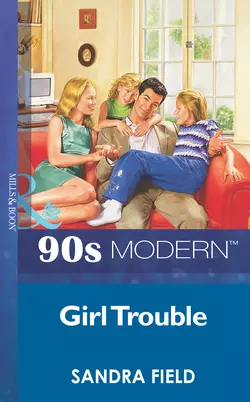Girl Trouble

Sandra Field
Тип: электронная книга
Жанр: Современные любовные романы
Язык: на английском языке
Стоимость: 458.46 ₽
Статус: В продаже
Издательство: HarperCollins
Дата публикации: 16.04.2024
Отзывы: Пока нет Добавить отзыв
О книге: He wanted a lover… Cade McInnes had fallen in love with Lori when she was sixteen and he was old enough to know better. But he hadn′t known better. They had parted bitterly. Not a family! Now it was ten years later. Lori had a bad marriage behind her and two adorable daughters, Liddy and Rachel.Except they didn′t seem all that adorable to Cade. Liddy had taken an instant dislike to Cade. Which was fine with him – he wanted only one blonde in his life, not three. But getting Lori into his bed meant accepting two little girls into his heart!MAN Talk There are two sides to every story – now it′s his turn!